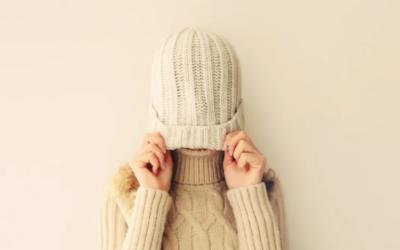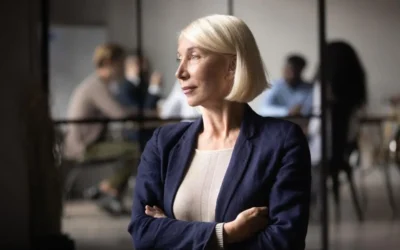Yesterday I met a young (i.e. under 30) woman who shared with me how one of her friends had recently had all her teeth chiseled down and replaced with veneers after a beautician had told her that she had a “gummy smile.” She wanted to look perfect for her wedding day later this year.
I couldn’t help but feel really sorry for her friend whose insecurity about her smile had been triggered so easily and led her to take such drastic action. I would put money on it that her husband-to-be had hardly ever noticed her gums. While her story was unique, it’s also incredibly common. You probably know someone yourself whose become preoccupied to the point of obsessiveness with shaping their body or face to conform to an idealized and illusive image of beauty.
Don’t get me wrong. I like to look good. Who doesn’t right?! But there’s a distinct line between healthy vanity (with a focus on health living) and unhealthy obsession (with a preoccupation with forcing our bodies into size 2 jeans.)
While we women seem wired to compare ourselves with others, trying to conform to the idealised, illusive and, as Naomi Wolf called it, the “Official Body Type” comes at a profound cost. Only when we refuse to buy into somebody else’s definition of beauty, and own the innate beauty we were born with, can we ever be truly emancipated. After all, who really get’s to say whether your love handles are loveable? You do.
The term “Desperate Housewives Syndrome” was recently coined to describe the rise of women 35 plus (I refuse to call women my age, middle aged!) seeking treatment for eating disorders like bulimia and anorexia triggered by the pressure to look like the eternally youthful women they see on TV. Frankly I think it’s an overly banal term for a serious phenomenon that profoundly undermines the wellbeing of too many people in our western celebrity-crazed world. I discussed it recently on The Circle, Australia’s version of The View (sort of).
It’s also one I know something about. Having struggled with bulimia myself in my teens and early twenties (which I wrote about in Find Your Courage), I know just what a vicious cycle it can be to escape from.
As a woman in my forties, with love handles intent on staying married to my hips, I also know how much pressure there is to look good. While I don’t watch Desperate Housewives or any shows of similar ilk (I’m too busy and life’s too short), I’m still constantly bombarded with images of women my age and older who are looking smokin’ hot. Photos of celeb mums, 6 weeks post baby, on the beach in their thong bikini bouncing their baby on their designer 6-pack. Fifty-something-year old Madonna in her hot pants looking hotter than I ever looked. Angelina with her six (or is it 7?) kids looking absolutely stunning after a long haul flight from Africa to address the U.N. IF ONLY!, we think to myself.
The fact is that if I were being paid a quick $20 mill to star beside Brad Pitt in a blockbuster (or even a paltry $5 mill) I’d also have a personal trainer shaping my body 6 hours a day, a raw-food chef and whatever else it took – bar surgery, have to draw the line there – to look like Angelina or Gwyneth or Jennifer. I don’t blame the celebs. They are just doing what they need to do to stay in the game. But I do think the rest of us need to take a step back, reframe our perspective, and realize a few important things:
- #1: Who we are is not our body shape, the number of our scales, the whiteness of our teeth, or the firmness of our butt. Never was. That’s just the casing.
- #2: The images being flashed in front of us don’t represent normal women. Twenty five years ago the average model weighed 8% less than the rest of us, today they weigh 23% less. Trying to look like them is Mission Impossible… at least for 99% of us.
- #3: The most attractive women (and men) are those who are comfortable in their own skin – love handles and all. They don’t sacrifice their soul (or teeth) or mortgage their house to modify their body to resemble a photo-shopped TV star (whose life we know NOTHING about besides what their publicists tell us.)
- #4: We get one chance to live life. One chance to use our time and talents to leave the world a little better for having inhabited it. What a tragic waste of time to spend half of it in a gym, on the scales or reading diet books in an effort to look like someone we are not. There are truly so many other more meaningful things to focus. Try picking up a World Vision magazine instead of People for a change.
- #5: If you’re a parent, it’s your job to role model healthy attitudes toward your body (it’s your temple remember), and what you put into it if you want to raise kids who feel good about theirs. Women who are forever dieting, talking about their weight and carrying on about their latest weight-loss workout are doing their kids are HUGE disservice. Come on mum, is that what you want for your daughters and sons? Focus on health, vitality, fitness, and all that nourishes your body and spirit! Scales be gone!
- #6: And finally, it’s not how you look that ever matters. It’s how you FEEL about how you look. And when you feel good about how you look, you always look better! Every human being is born intrinsically worthy and lovable just as they are (and just as they aren’t). If you think looking perfect (whatever the heck that is) will complete you and fulfill your need to feel loved and worthy you will spend your life on a merry go round – always striving, never arriving. When we respect what makes you you, and treat the amazing body you were born with the way it deserves, then you can’t help but feel and look a whole lot better and more attractive!
While we women seem wired to compare ourselves with others, trying to conform to the idealised, illusive and “Official Body Type” comes at a profound cost. Only when we refuse to buy into somebody else’s definition of beauty, and own the innate beauty we were born with, can we ever be truly emancipated. After all, who really get’s to say whether your love handles are loveable?
You do.
I know that’s easier said than done. Sometimes two steps forward, one step back. It also calls for an ounce or two of courage. Courage to be vulnerable. Courage to be imperfect. Courage to be different. But in the end, anything worthwhile demands no less.







